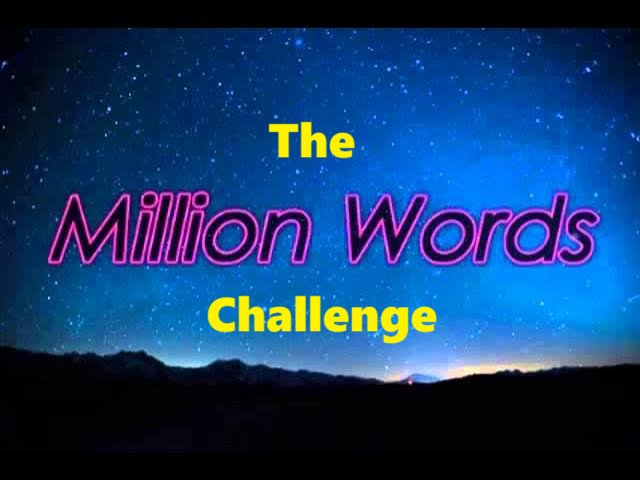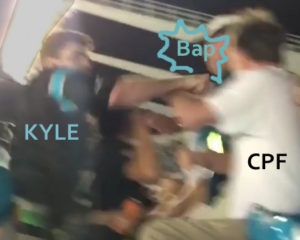Introduction
Hello, I’m comedian turned author Mike Lukas and I’m excited to tell you about the Million Words Challenge I completed in 2021-22.
The insights I gained from it fundamentally changed me as a writer and storyteller. I want to share those breakthroughs and ah-ha’s with any writer who is looking for a way to get better at what we do.
I’ve written creatively all my life, but I became a fulltime writer in 2017 and have been making a living at it since 2018.
I belong to multiple online writing groups, and often new writers will post some form of this question:
How do I become a better writer?
The simple answer, of course, is to write. A lot.
But to a newbie, that feels more like a snarky response than honest advice because it’s too general to be helpful.
“Just write,” leads to even more questions, like:
- A writer writes, sure, but how do they know what to write? And how much to write? And how often?
- Where do the words and stories of a new writer come from?
- What makes my newbie words and stories less readable than a pro’s?
- How long before a newbie writer gets any good?
- What should my writing plan be besides, “Type more words,”?
Of course, to become an expert at anything takes time and plenty of repetitions. To master a thing, you have to do it over and over again until your brain and body parts develop muscle memories for all the skill sets required to do the thing well. Automatically. Past where “you don’t make mistakes to where you can’t make mistakes” (as the saying goes) because you’ve trained your subconscious and physical being to do the thing right every time.
But first, before you can be that good at the thing, you’ve got to be willing to be bad at it.
Newbies don’t know what they don’t know yet. And according to Gladwell and Cartier-Bresson, they won’t learn it until they do the thing at least 10,000 times, often poorly, but with spurts of naïve brilliance peppered in to keep us going. It is only through that routine repetition that a rookie can gradually become better at the thing and eventually become a pro.
I want to be a fictional storyteller, a goal that I’ve been hacking away at on the side since 2017.
At the start of 2021, I considered myself to be a decent fiction writer who couldn’t figure out why his stories kept getting rejected by agents and publishers.
Now I realize it was because I was still a newbie writer with:
- No clear idea of how to tell a story (though I told a lot of good ones)
- No clear understanding of why people read and crave stories, but I could see them laughing and listening to many of mine
- Trouble typing because I made a lot of errors and had to backspace constantly
- Difficulty reading consistently and who had no idea what to look for whenever I did read
- No clue how to get published or how to self-publish
- No patience when it came to wanting to show the world what I had written (it was brilliant, after all)
- No clue as to why the material I had been submitting to agents and publishers had all been rejected
- No confidence about my writing choices so I wrote what I thought was correct
- Zero experience authoring a full novel (or my own non-fiction book for that matter)
As a struggling new fiction writer, I found myself asking my own version of that same basic question:
How do I become a better writer?
Here’s how I answered.
On January 1, 2021, I gave myself the writer’s version of Gladwell’s and Cartier-Bresson’s 10,000-times challenge:
I vowed to write 2,000 words a day every day and to not share my content with anyone until I totaled a million words.
As soon as I thought of it I wondered if I could I do it, actually write a million words for nobody but me.
Well, I’d thrown down my own literary gauntlet, so I had to at least try.
So, in 2021, I began the self-imposed Million Words Challenge (MWC).
On that initial Friday of January 2021, I typed my first 2,000 words. Nonstop. It took me about an hour.
I did that every day for all of 2021 and almost half of 2022. I used two MS Word documents to record it all, one for each year. I’m proud (and shocked) to say that in that entire time – 486 days – I did not miss a single daily session. Thankfully that turned out to be easier to do than it sounds.
By the end, it only took me about a half hour to hammer out those 2,000 daily words.
During those 486 days in a row, I hammered out the following:
- Happy and furious rants
- General ideas and philosophies
- Posts and emails and other random first draft content I was interested in creating
- Practiced using the different fiction writing tools and concepts I was learning
- First drafts of blog article ideas
- First drafts of short story ideas
- First drafts of fictional novel chapters
- First drafts of non-fiction book chapters
- So much bullshit and rambling it would make you puke
From all that material, I have since copied-and-pasted then edited what I thought was keepable. Eventually out of that Million Words Challenge content came multiple blog articles, several collections of short stories, a fictional novel, and a non-fiction book.
And I haven’t been allowed to share any of it with anyone yet. Ugh.
I finally completed the challenge on Monday, May 2, 2022. Yay!
Here’s a screenshot of my final word count in the two MS Word docs:
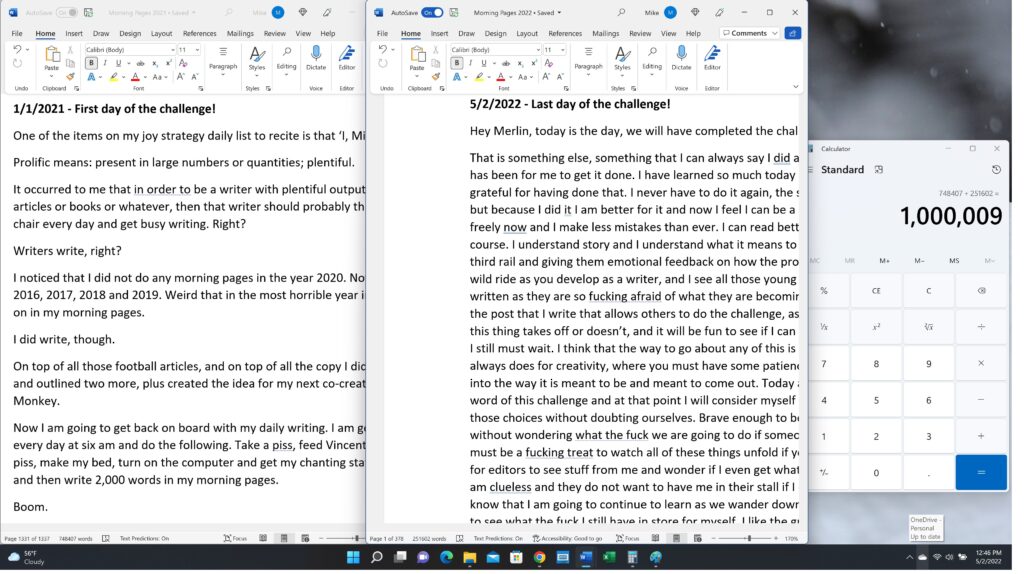
Churning out a million practice words was an accomplishment in itself just in terms of getting a wild to-do done.
However, from the start I knew for this challenge I wanted to do more than just type a million words.
I also wanted to become a better writer on every level, so I figured my challenge should have multiple parts.
So, during those 486 days in addition to hitting that daily 2,000 word count, I also:
- Did a daily typing exercise to become a better typist
- Did a daily speed reading lesson using a free app I found online to improve my ability to read
- Read daily – including some how-to-write books and some actual fiction by expert authors
- Took an online course on how to self-publish and did lots of online research about the industry
Ten Ways the Million Words Challenge Made Me a Better Writer

1) I became a better typist and reader
When I took piano lessons as a kid, I blew off practicing my scales daily and that came back to haunt me later on when I tried to play more challenging music.
Same with typing.
I write fiction by typing on a keyboard and before the MWC my typing skills were frustrating at best. Lots of backspacing, mis-hits, and other painful time-consuming errors. Those constant hiccups forced me to pause my writing which killed the flow and momentum of every session. But as a new writer, I had never done anything about that.
So, for the MWC, I decided to spend five minutes a day doing an online typing exercise.
The free (at first) program I used is called Typing Practice Professional (link below).
For 486 days in a row, I used the exercises in that app to practice my typing ‘scales’ and now I can say I am finally a decent typist.
I can type the words I am thinking with few errors and that has improved my overall flow.
There’s a rhythm to my typing now – it gets pleasantly percussive when I’m on a roll.
Same with reading.
Halfway through the MWC, I realized I was struggling with one the most basic requirements of becoming a writer – reading – so I began doing a daily speedreading course to improve those skills.
The free program I used is called ReadSpeeder (link below).
Using that site’s simple daily exercises and lessons, I learned to read better and quicker by grouping words together into mental pictures that I can more easily absorb. My right brain gradually took over my reading again the way it had when I was a young reader and it has improved exponentially throughout the challenge.
Typing and reading are two of the most basic skills a newbie writer can work on to get better.
The MWC forced me to do both a little bit each day and those muscles have grown far stronger as a result.
The difference now is fantastic – I type with speed and confidence and my writing voice gets to flow uninterrupted by basic errors; I read daily now, and I finish books which has allowed me to learn how the experts do the thing I am trying to do better.

2) I learned how to write every day without fail
One key to being a prolific writer is simple: AIC – Ass in Chair.
Having an unbreakable daily writing schedule is a necessity to becoming a better writer.
Forcing myself to write 2,000 words first thing daily – regardless of how hectic and negative my life and schedule got – did something for me as a writer that I had not expected.
It created a daily writing routine that after the first month became an unbreakable and pleasing habit.
Every day, 486 times in a row, I faced that “to write or not write” dragon and the MWC forced me to slay it repeatedly.
To the point where I write every day now without giving it another thought. I happily make time to do the thing I want to get better at doing. In fact, I’ll steal that time if I have to, from my TV time or social media time or Netflix Binge time or sleeping in time. Because of the MWC, writing daily feels necessary and enjoyable to me.
Also, just having to write that many words every day – 2,000 – did something to me as a writer.
It turned me into a fearless content machine. Before I started the MWC, 2,000 words felt lofty, like a dreamy goal you’re happy you meet once in a while when you’re on a roll. To have to do that daily strengthened all the content-creating muscles that live inside my writer’s body. Word counts no longer intimidate me. I pump out 2,000 words for breakfast and I’m still hungry to write more.
How do I write better?
AIC. Daily. Ooh la la.
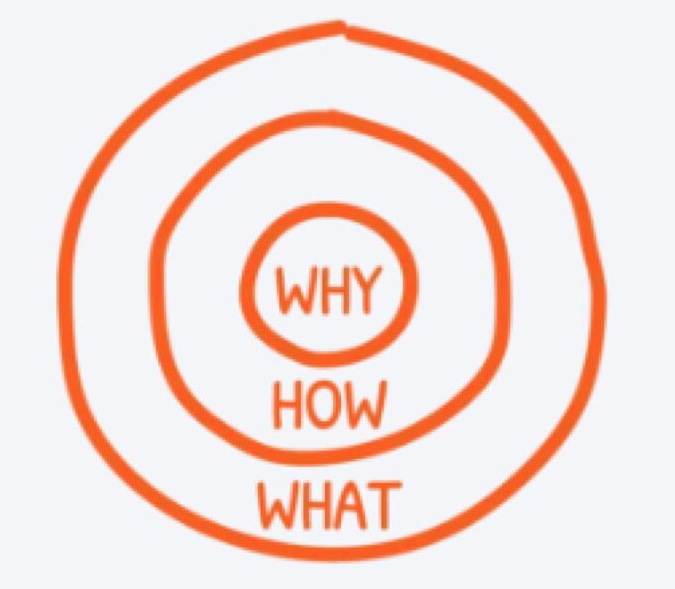
3) I discovered my writing Why, What, and How
Since I was young, I wanted to be a writer. Now I know why.
The MWC forced me to write 2,000 words daily and in some of those sessions I wrote about WHY I wanted to write, and it came down to something simple:
I love being creative by making up and telling compelling stories. Always have since childhood. And I love sharing them with other people to make them laugh and entertain them.
In fact, I spent 24 years making up and telling twisted stories to groups of people as a professional comedian, but now that I am a husband and a father it’s easier and wiser to do that from my desk.
The MCW also helped clarify WHAT I love to write – helpful blogs, action-packed fiction, twisted short stories, and non-fiction books that share the wisdom of the universe.
Now I also know my writing HOW – like the musician formally known as Prince, I want to eliminate the corporate middleman and do it myself as a prolific self-publisher who creates his own audience through solid marketing.
That’s why I spent time learning how to self-publish, including taking this course:
Sell Books on a Shoestring Budget – Rob Eager
Now I have a clearer game plan to create passive income streams with my writing, all thanks to the MWC.
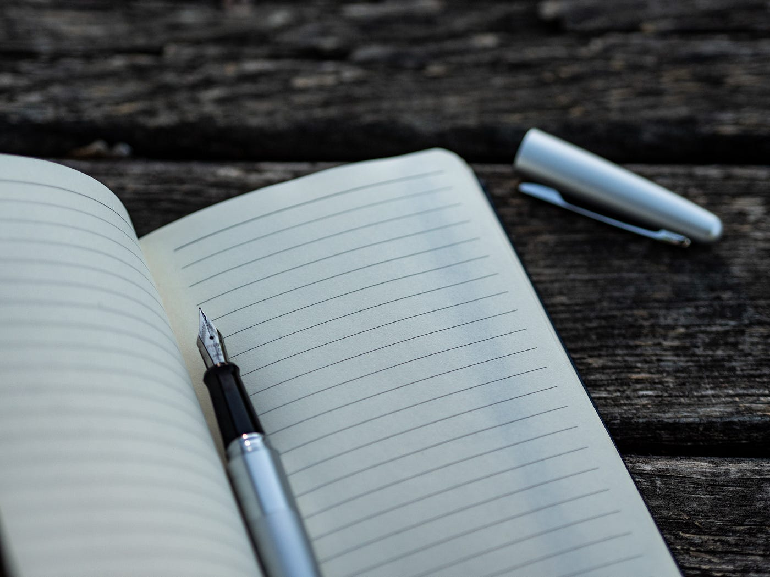
4) I learned the basic tools of fiction writing
To become a better writer, I had to learn to be a better reader, and a huge part of that journey was to learn how a writer reads.
In other words, what the hey am I looking for in someone else’s book and how does it help me become a better writer?
To figure that out I got help from a master writer – Steven King – whose book, On Writing: A Memoir of the Craft, does a great job at breaking down the basic elements of writing by using a toolbox as his metaphor.
The top layer of King’s writer’s toolbox contains the basic tools of the craft like Vocabulary and Grammar.
In the next layer of the writer’s toolbox, King places Elements of Style, where the types of paragraph and phrases you choose to use (and the adverbs and adjectives you choose NOT to use) come into play.
Deeper in King’s writer’s toolbox are three critical, high-level tools: Description, Narration, and Dialogue, the holy trinity of fiction writing skills that every successful author must master:
- Describing the world of your story
- Narrating its plot
- Creating what your characters say to one another.
Before I started the MWC, I read books to be entertained.
During the MWC, thanks to King’s insights, I began to read books to notice other authors’ choices when it comes to using all those writer’s tools:
Vocabulary: do they use gargantuan words or keep it basic?
Grammar: do they phrase things simply or cleverer about it are they?
Elements of Style: are their paragraphs dense or sparse? Their phrasings formal or casual or purposely unique? How do they handle their dialogue tags? Their use of adjectives and adverbs?
Description: how does the author describe people, places, thoughts, and things? Does it work for me?
Narration: how does the author take me through their story? Am I captivated or ready to bail?
Dialogue: how do the characters speak to each other? Is it realistic or stylized? Can I hear it in my head? Is it believable to me?
Each of those is a choice and understanding that helped me to practice my own choices as a writer.
Using the MWC, I was able to practice using my writer’s tools 2,000 words at a time – like a baseball batter in the batting cage swinging away at curve balls, then fast balls, then sliders and change-ups.
A million *wacks* later…
Nobody has to see any of that MWC crap I wrote because the results of those sessions were not for public consumption.
A lot of it turned out to be usable (including a few first drafts of this very post!), so I copy/pasted those rough ideas into other files for later usage.
What a better way for me to read and write, with all of King’s insights in my toolbox.
Thanks, Steve!

5) I learned what a story is
One major lesson I learned during the MWC was that there is a huge difference between writing and storytelling, and just because you can do one doesn’t mean you are automatically doing the other.
Turns out I am a good enough writer but a questionable storyteller.
Only because I had no clue what a story was – I figured it was the same thing as a plot, and the better you can tell the reader what happens, the better your story is.
It worked for me as a comedian so I figured I could also fake through it as a writer.
WRONG.
That fat stack of rejections from all those agents and publishers should have been the first clue.
During the MWC, I read Lisa Cron’s Story Genius (link below) where she blew my mind explaining how plot and story are two different beasts.
Cron says (paraphrasing) a story is how your protagonist shifts from their ‘before’ into their ‘after,’ whereas the plot is a timeline of struggles that force the shift to happen.
In other words, to tell a captivating story is to first paint a picture of who someone was before the story takes place. Then show them facing a series of struggles all to become their newer self after.
The plot is simply the unfolding of things that force the protagonist to change.
Finally understanding that difference was a huge Ah Ha moment for me.
Now I read differently since I notice how other authors use a plot to tell their story.
It also helps me write differently because now I know how important it is to understand my protagonist’s ‘before’ first so I can better show them shifting into their ‘after.’
I used the daily MWC to practice writing short stories which forced me to shift the protagonist’s before into their after and eventually I learned to do it more subtly.
I’ve included the final edit of one of those short stories – Last Can of Tuna – at the end of this article.
I have become a better writer by understanding how to also become a better storyteller and then by doing that over and over again.
Next I learned why knowing what a story is becomes so critical to being a better writer.

6) I learned why people are interested in stories
I always figured other people read stories for the same reason I did – to be entertained. Turns out there’s a lot more to it on a deep, subconscious, reptilian-brain level.
During the MWC, I read Lisa Cron’s Wired for Story (link below) in which she breaks down why stories have always appealed to humans.
Cron says (paraphrasing) it comes down to survival.
Humans crave stories in order to increase their chances of staying alive by safely watching and learning from someone else facing a struggle.
That way in case they ever face the same struggle someday, they might have a better shot at surviving it.
Cron says this is why people subconsciously crave stories, and if your story doesn’t do that for them, they put it down and move on to one that does.
If you know that as a writer, you can tell your story in such a way that it gives the reader exactly what their subconscious brain is longing for – the next part of the solution to a problem they themselves may have to face one day, one step after another.
The best stories are told in a way that takes advantage of the reader’s subconscious brain’s need to hear the next part of the story so they can know how to best solve that problem (or how NOT to solve that problem) for themselves.
During the MWC, I began reading stories with this insight in mind, and I noticed how the better authors unfurled their story in such a way that my survival-seeking brain always wanted to know what came next.
Of course. the best writers hide this tactic deep in their prose, but it seems to be there in every classic page-turner.
Now I know to tell my own stories with this ‘shared-struggle-solving-desire’ in mind.
Next is where Cron brings this insight home.

7) I learned the importance of the “Third Rail”
Cron’s plot vs story insights finally clicked for me when she presented it using a subway metaphor.
Ms. Lisa (paraphrasing) compares writing a great plot with building a fancy subway car.
The better your writing, the fancier your subway car looks and feels and smells.
But the purpose of a subway car isn’t to be fancy, it’s to functionally move the riders from point A to point B and then to C and beyond.
To do that, the subway car needs to be hooked up to a third rail charged with electricity that powers the motor which propels the car further down the line.
If your plot is the subway car, Cron says that the third rail is your story, and its power comes from how your protagonist is changing from their ‘before’ state to their ‘after’ state throughout the ride.
It’s the writer’s job to constantly report back to the reader how that main character is being emotionally affected by the various plot points they are enduring.
In other words, it’s not enough to describe how Frank just survived a car crash.
A good writer also shows the reader how the danger of that car crash and the fortune of living to tell the story afterwards has emotionally affected Frank and therefore those he loves and hates.
The reader wants to know all that – it’s their vicarious fix of how it might feel to go through and survive a similar car crash as Frank’s – and their subconscious brain is unsatisfied without it.
Without that ‘third rail,’ a subway rider might appreciate the fancy car they’re in for a moment the way they would in a museum, but soon they’ll make their way to a different subway car that actually takes them someplace they want to go.
Similarly, without a ‘third rail,’ the reader’s conscious mind decides to toss away that fancy story-less plot and they go get their story-fix elsewhere from an author who understands exactly what they seek.
Cron stresses the vital importance of providing that ‘third rail’ to the reader throughout the story, to give them a taste of what it is like to face and survive (or not) these many struggles.
She says (paraphrasing) without it, you might as well not even write the thing because it won’t give the reader what they subconsciously crave.
Cron says that subway riders will even endure a pitiful subway car as long as it takes them where they want to go, and she uses the book Fifty Shades of Gray as her example.
I’ve been able to go back to what I have written and add that ‘third rail’ in all the places I had failed to do so because I had no conscious understanding of why it was so important to give that to my reader.
That’s given those stories a discernable burst of connection and readability now.
No wonder those literary agents and publishers rejected my stories back then – they could tell I still hadn’t learned about telling good stories.
During the MWC sessions, I practiced adding ‘third rails’ to whatever I was writing, and gradually I began to learn more subtle ways to get the job done.
Thanks, Lisa!
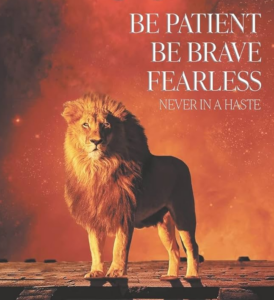
8) I learned how to be patient and brave
As for patience…
Since I began writing blog articles and fiction in 2017, my need to show my finished content to others has been as strong as my need to pet my doggy and have him waggle his tail and kiss me.
I’ve shared my articles and stories with family and Facebook friends and through my website and I’ve pitched them to dozens of literary agents and publishers because I was hungry to be a fiction writer for a living.
If it were standup comedy, I wanted to jump straight from being the opening act to being the headliner because I thought my stuff was that good and that I was ready for the big time.
WRONG.
I was an okay writer but a clueless storyteller, and my work reflected my many shortcomings.
Just ask all those agents and publishers who rejected me.
But newbies don’t know all the things they don’t know yet, so back then I was ready to share my fun plots with the world.
For me, a tough part of doing the MWC was the rule that nothing I wrote could be shared until afterwards.
I’m a born performer, and I had to stand down. Ugh.
The MWC forced me to stop focusing on what would happen to whatever I wrote after I wrote it.
Or whether people would love it or hate it. Or worse, “Meh” it.
Instead, I had to focus on what I was writing and how I was writing it and whether I enjoyed what I was creating.
Over and over again.
There were no applause breaks or attaboys, just me patiently trying to become a better writer 2,000 words at a time.
As for bravery…
The MWC also taught me that a decent writer must learn to be brave.
Not ‘police or fireperson or kindergarten teacher’ brave, but creatively and emotionally brave.
As in, a writer must constantly make brave choices as their story unfolds and stand by them in the face of criticism.
Writers must develop their own brave takes on life and love and fantasy and stand by that while being judged by critics who might only see a smaller picture.
Writers must be brave enough to be emotionally vulnerable, a trait that many people spend their entire life avoiding.
It’s brave to think that my stories are worth reading, but they are.
It’s brave to sit for hours typing out stories despite some people considering that to be a waste of time.
What’s bravery? It’s confidence applied.
The daily grind of the MWC with all its word-typing and speed-reading and choice-making and practice, it made me a far more confident writer who bravely stands by all his choices and stories.
How can I be a better writer?
Learn to be more patient with sharing my output and braver with my literary choices.
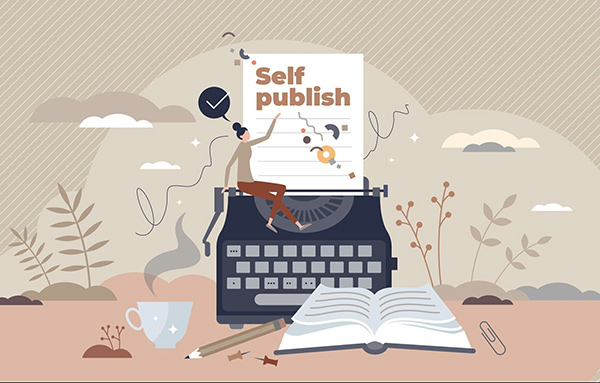
9) I learned how to self-publish and market a book while building up an email list
One of the most practical benefits I got out of the MWC was from learning how the publishing industry works.
The Web Yoda (link below) taught me how to create a website using WordPress and I created my own author site:
I did lots of online research and discovered how the traditional literary path to publishing works versus what successful self-publishing involves.
YouTube became my publishing university as did the free online classes at Reedsy and Jericho Writers and Convertkit.
I paid for a valuable self-publishing class Sell Books on a Shoestring Budget – Rob Eager.
I used the almost-year-and-a-half of the MWC to teach myself the business side of being a modern author, and I learned that to make a living writing fiction is tough but there are multiple ways to do it.
I have a plan and now that the MWC is complete I can begin to enact it.
My goal is to build up an audience of readers as I self-publish and market my novels, short stories, and non-fiction books.
My dream is to make a living as a legitimate fictional storyteller and have so many passive income streams from it that I make bank while I sleep.
A fella can dream…

10) I accumulated some excellent reference material
Finally, doing the MWC inspired me to collect content that improved how I wrote and told stories. Insights from Steven King and Lisa Cron were especially mind blowing and I highly recommend you read their takes on writing and storytelling (links below) because they will absolutely change the way you write.
There are so many other brilliant teachers and fellow-writers who have shared their knowledge and insights with the world and that makes becoming a better writer easier for the rest of us to accomplish.
Thanks to all of them for that.
I created a list of links to these books and classes I talk about so that anyone who reads this blog post can find that info on their own.
Each of these resources is a potential head start for a newbie that made a huge difference in my growth as a writer. I make no money sharing these links, I just wanted to make it easier for everyone to follow up on these incredible literary sherpas.
Hope this helps!
List of Resources:
Peter Clark – Writing Tools
Lisa Cron – Wired for Story: The Writer’s Guide to Using Brain Science to Hook Readers from the Very First Sentence
Rob Eager – Sell Books on a Shoestring Budget
Steven King – On Writing: A Memoir of the Craft
ReadSpeeder: https://readspeeder.com/lessons.html
George Saunders – A Swim in a Pond in the Rain: In Which Four Russians Give a Master Class on Writing, Reading, and Life
Strunk and White – The Elements of Style
John Truby – Anatomy of Story: 22 Steps to Becoming a Master Storyteller
Typing Practice Professional: https://www.microsoft.com/en-us/p/typing-practice-professional/9msmkpdh6wrm?activetab=pivot:overviewtab
Web Yoda: https://www.youtube.com/c/WebYoda
And finally…
After completing the Million Words Challenge, the first thing I thought was, “No wonder none of that crap I used to write got any nibbles from agents or publishers.”
Whoops.
That’s okay, I was just a hungry newbie writer who had no idea what he didn’t know yet.
Completing this MWC has helped me to upgrade my writing, reading, and storytelling skills, so at least I might have half a chance now.
Hope all this brought together has been helpful to someone else becoming a better writer – please let me know what you think in the comments.
Cheers,
Mike Lukas
P.S. Down below is that free short story I promised! One day during a MWC session, I heard a dog bark outside my open window, so I used that mental interruption to start a short story that after much editing and re-writing became the following…
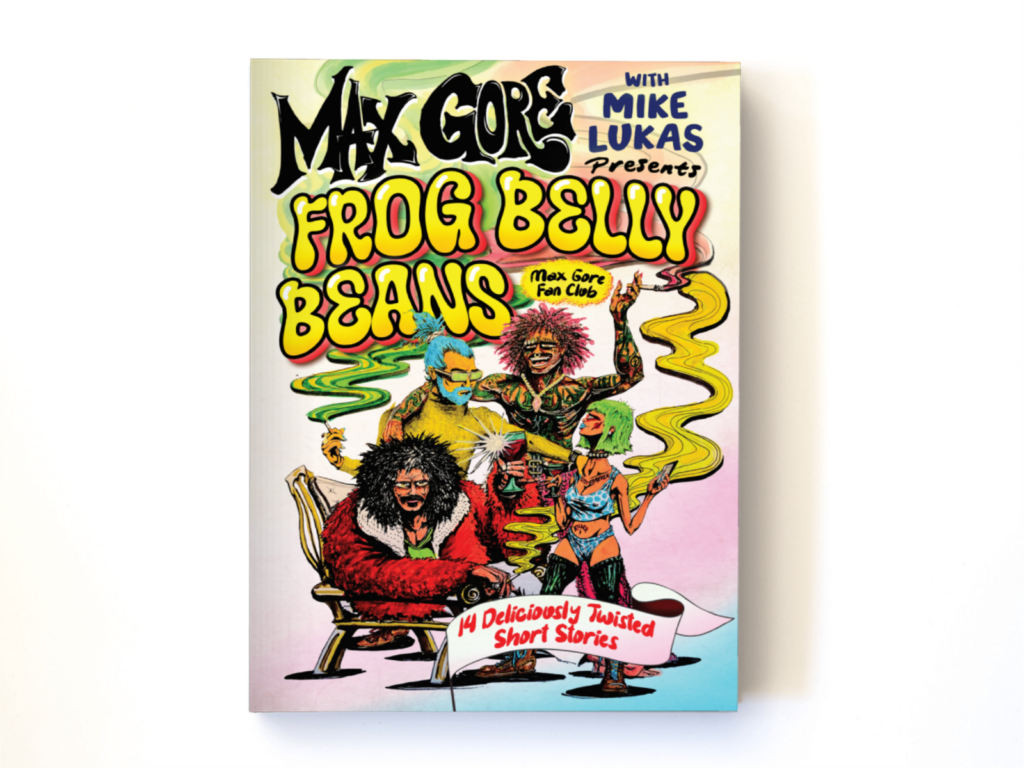
A selection from Max Gore’s Frog Belly Beans: 14 Deliciously Twisted Short Stories
Last Can of Tuna by Mike Lukas
The dog kept barking at the sliding glass doors that led to the back patio, and the persistent noise interrupted Herbert’s spiraling train of thought.
“Knock it off, boy. You’re driving me nuts.”
Herbert was annoyed, but not at his dog; it was his empty fridge that was pissing him off. And his empty cupboards and empty gas tank and checking account, all down to nothing, save a single can of tuna that sat on the otherwise bare kitchen counter. He sat alone at his dining room table sipping orange Kool-Aid for breakfast, surrounded by stacks of bills that nagged at him like hungry ducks demanding bread he didn’t have.
Herbert had been raised to always pay what he owed.
And he’d done that his entire life. But lately his military pension had been stretched too thin to take care of business. Food and hospital bills and funeral expenses and such. His wife would kill him if she saw how disorganized and behind he’d let things get, but she was gone now, passed away months ago from lung cancer, so there was little she could do about it now.
Still with the barking.
“Goddammit, Rocket, what is it?”
Herbert was dressed in what he had slept in, a loose T-shirt and pajama bottoms, and now he also had on his old blue slippers. He got up from his chair, walked into the family room, and pulled aside the rear drapes to take a better look out back at what had caught his pup’s attention.
Soon as he spotted it his first instinct was to call the cops.
It was a body. One he recognized.
“Son of a bitch.”
Herbert could tell it was his friend and neighbor, Clyde, who lay face down on the gray cement patio, his head surrounded by a puddle of red. Clyde had on his favorite outfit: his ancient, checkered bathrobe, loose sweatpants, and leather sandals. From the looks of it, he had been carrying two cups of coffee on his way to Herbert’s to share the morning. That had become a daily habit for the two ex-marines. Looked like Clyde must have tripped and struck his head on the sharp edge of the metal grill, and that was enough to kill the tough son of a bitch.
Just in case, Herbert went out and felt for a pulse. Nothing. Just a lingering smell of Aqua Velva.
“Clyde, you clumsy son of a bitch.”
Herbert stepped back inside to dial 911 and to get a blanket to cover his friend. Clyde’s accidental death wasn’t much of a shock to Herbert compared to all the casualties he’d already witnessed in battle in Vietnam. And in his wife’s hospice room.
Still, he’d miss his neighbor. The morning coffee breaks, and the way Clyde would say “Roger that” and “Ten-four” to whatever Herbert brought up. He’d also miss the way Clyde had kept things simple and predictable, like how he used powdered creamer in their coffees every morning, and how he did most of his shopping at thrift stores and bought two-day old donuts for half off, and how he used his house number as his go-to password so he wouldn’t forget. And Rocket would surely miss Clyde’s aggressive belly rubs and endless ball tosses in the back yard.
Herbert reached for the phone on the kitchen table, in the middle of all the bills, then stopped.
Clyde had lived on his own next door. He might be a guy who had a few dollars lying around the house. At first, the thought of robbing his dead buddy made Herbert wince, but then he thought, What the hell, I did the same thing plenty of times back in the war. Spoils of victory, Captain Haskins had called it. “Fuck ’em,” Haskins had told the men. “They’re dead now. What do they care?”
Herbert stopped his pacing for a moment to lay an old blanket over most of Clyde’s body.
None of the neighbors had shown up yet, it being too early for any of them to wander into their own backyards, where they might notice the corpse next door.
Unlucky son of a bitch.
Knowing Clyde, he wouldn’t object to any spoils of war. It’s not like he had any kids or a wife or siblings who would get any of his belongings anyway. Like Herbert, Clyde had been a loner, probably why they had gotten along so well. And as sure as his friend was dead, any money Clyde did have stashed away in that house would go straight to whichever cops found it first.
The hell with it, Herbert finally decided.
He pulled open the sliding glass door again, stepped back out onto the patio, and fished out a set of keys from his dead friend’s bathrobe pocket. The dog growled at that and started barking again.
“Hush, that’s enough, boy. Clyde would be fine with this.”
Herbert walked through his backyard right as the early morning sun peeked over the row of identical rooftops in the quiet suburb. He crossed over onto Clyde’s property and keyed his way into the back door of his house. A cloud of foul air hit his face, like he’d cracked open an abandoned gym locker. It reeked of moldy onions and coffee, with a heavy undertone of urine.
Herbert found a light switch in the kitchen and flicked it on.
There were pots and pans and dirty dishes on every counter and overfilling the sink. The living room and dining room were both crammed with cardboard boxes and piles of garbage and broken furniture. In every room junk had been stacked wall to wall, with only a narrow pathway left open. Beyond the piles, several built in bookshelves held dozens of knickknacks, mostly a variety of porcelain frog figurines.
“Clyde, you frog-collecting son of a bitch.”
Herbert spotted an unopened Hershey bar resting on the arm of a newspaper-covered La-Z-Boy and pocketed it. He went down the hallway past a bathroom that smelled like a broken sewer and into Clyde’s bedroom, which similarly reeked. He switched on the overhead light and looked under the mattress that was covered in a tangle of yellowed sheets. He checked in the dresser drawers and in the nightstand next to the bed. Nothing.
Herbert leaned into the closet, and the smell of black coffee, smoke, and sweaty armpits hit him. He went through the various pockets of the sagging coats and jackets and blue jeans and found about eleven dollars in loose bills and coins. He folded up those spoils of victory and shoved them in his pocket next to the chocolate bar, imagining his dead friend floating nearby, watching his place being looted.
“Roger that,” he’d be saying. “Ten-four on those spoils of victory.”
Herbert knelt down and checked the insides of Clyde’s shoes for hidden treasure.
That’s when he saw the safe.
It was made of black-painted metal and built into the base of the wall, hidden behind a pair of tattered military boots. The safe was about a foot and a half across, with a keypad on its front. That would normally be a problem, except Herbert knew Clyde well enough to know that he hated complicated and unpredictable things. After some searching, he found an old water bill lying among the hoarded junk, and he typed Clyde’s house number—1-5-2-7-9—on the safe’s keypad.
Its thick door clicked open.
Inside were a dozen wrapped stacks of hundred-dollar bills. There was also a loaded pistol with extra ammo and a few stock certificates. Clyde’s passport and wallet were in there, too, as were three gold bars and a dark felt sack filled with about fifty uncut diamonds.
“Clyde, you rich son of a bitch.”
Herbert stuffed everything but the passport into one of his dead friend’s pillowcases and then sealed up the safe again. He arranged the boots and shoes and clothes back where he had found them. Herbert even wiped off any fingerprints he might have left. Then he closed and locked the back door.
Through both back yards, he carried the heavy pillowcase over his shoulder like a suburban Santa. Herbert’s head was filled with positive thoughts of how quickly a man’s fortunes can change. This morning he’d woken up broke, and now, an hour later, his financial problems were solved. At one point, he believed he saw a quick flitter of curtains at his nosy next-door neighbor Mrs. Hardwick’s house, but he chalked it up to the morning breeze.
Back on his own patio, Herbert stepped over Clyde again.
Sticking out from under the blanket, his friend’s stiffened fingers still gripped the handles of the two shattered coffee mugs he’d been carrying. Herbert thought of their morning bull sessions that usually got heated but never angry. He’d miss starting his days like that, talking with someone who understood what it felt like to serve in combat.
“Fear has a peculiar smell to it,” Clyde had said once.
“Yeah,” Herbert had said. “Like rotten cabbage. Worse than the smell of death.”
“Roger that,” Clyde had said, nodding. “Most men aren’t meant to see and do what needs to get done to win a battle.”
“Let alone survive.”
“Ten-four.”
Herbert bent over and returned the keys to Clyde’s bathrobe pocket, then patted his old friend gently on the back of his blanket-covered head.
“Thanks, you old son of a bitch. You really came through for me, marine. Oorah.”
Herbert went inside the house. He hid his spoils of victory in the guest bedroom closet inside an old suitcase that he covered with folded quilts.
Back in the kitchen, he dialed 911.
“What’s your emergency?”
Herbert sucked in a lungful of air. “It’s my friend Clyde. There’s been an accident, and I think he’s dead.”
“Stay right there. I’ve already got someone on the way.”
Herbert hung up the phone. He heard the wail of a distant siren and was impressed by the fast response. He started folding up and filing away all the overdue bills. For the first time in a long while he felt like everything was going to be all right.
Then Herbert fed Rocket a bowlful of tuna, the last can he had.
* * *
“Yes, ma’am, my full name is Mrs. Eleanor Francis Hardwick. Well, I’m a next door neighbor. His backyard and our backyard touch. Mm-hmm. I saw the whole thing. Huh? Yes, I hear them getting closer, that was certainly quick. I’ll be here. Sure, I’d be happy to talk with them. Believe me.”

